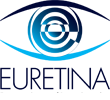Researchers at the Centre for Medical Image Computing, University College London, London, UK and the Biomedical Research Centre at Moorfields Eye Hospital NHS Foundation Trust, has announced the introduction of “RETFound”, an AI (Artificial Intelligence) model for retinal images that “learns generalizable representations from unlabelled retinal images and provides a basis for label-efficient model adaptation in several applications”. Researchers have used RETFound trained on 1.6 million unlabelled retinal images by means of self-supervised learning (SSL) on machine learning algorithms developed using millions of these eye scans from the UK NHS. The report has been published in the journal Nature (Vol 622, published online on September 13th, 2023) and the senior author, Professor Pearse Keane, UCL Institute of Ophthalmology and Moorfields Eye Hospital, commented that: “[t]his is another big step towards using AI to reinvent the eye examination for the 21st century, both in the UK and globally. We show several exemplar conditions where RETFoundcan be used, but it has the potential to be developed further for hundreds of other sight-threatening eye diseases that we haven’t yet explored. If the UK can combine high quality clinical data from the NHS, with top computer science expertise from its universities, it has the true potential to be a world leader in AI-enabled healthcare. We believe that our work provides a template for how this can be done.”
While Artificial intelligence (AI) and “machine learning” (ML) are often used interchangeably, AI specifically refers to the “general ability of computers to emulate human thought and perform tasks in real-world environments”, and machine learning refers to the “technologies and algorithms that enable systems to identify patterns, make decisions, and improve themselves through experience and data”. The field of AI intersecting on healthcare is exploding and there appears to be no end of applications on the horizon. According to the UK researchers, RETFound could help improve diagnosis of some of the most debilitating eye diseases, including diabetic retinopathy and glaucoma, and predict systemic diseases such as Parkinson’s, stroke and heart failure. Identifying general health issues through the eyes is an emerging science called “oculomics” – a term coined in 2020 by Professor Alastair Denniston, one of the paper’s co-authors.
The UK research team’s RETFound model are making the system open-source, freely available to use by any institution worldwide, to act as a cornerstone for global efforts to detect and treat blindness using AI. In conclusion of their study, “we have verified the efficacy and efficiency of RETFound in adapting to diverse healthcare applications, showing high performance and generalizability in detecting ocular diseases and significant improvement in predicting systemic diseases. By overcoming current barriers to clinical AI applications—notably, the extent of labelled data and limited performance and generalizability—SSL-based foundation models open the door to accelerated, data-efficient devices that may transform care for patients with ocular or systemic diseases”.
